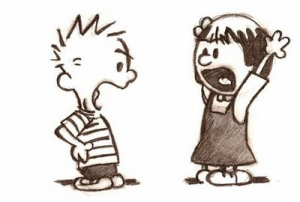Independence runs fiercely deep in my family. The ability to shrug off pain and keep going is a virtue valued by many, including those whom I love. I remember one time (of several such instances) when my dad and I were working together clearing some brush, using a wood-chipper. Let me assure you, this story doesn’t end as badly as you might think it does, as the wood-chipper plays a secondary role. Anyway, as my dad was feeding a tree branch into the chipper, the teeth grabbed it and sucked it in quicker than he was anticipating. Some of the auxiliary branches of the main branch were rapidly pulled forward, slicing across his face. He grunted and put his hand over his eye. I looked to see blood seeping between the fingers of his gloved hand. I had no idea what the severity of his injury was and I stopped to ask if he was ok. He responded by vigorously rubbing the blood out of his eye, revealing a gash across his eyelid. The gash quickly filled with blood again, which he wiped again. Then, instead of cleaning the wound and getting some medical attention, he just picked up the […]
Define This: Clarifying in Order to Communicate
You might read headlines in the newspaper such as “watching TV leads to depression” or “poor sleep habits linked to suicide risk” or “Justin Bieber is a train-wreck in progress”. All of these headlines are designed to grab your attention, summarize hours of research into a bite-sized piece of information (at least the first two), and lead you to a particular conclusion. While the truth of these statements is debatable, one thing they all have in common is their use of operational definitions. Operational definitions may not be the ones you find in the dictionary but they are adopted for the purpose of investigating a question, to ensure that everyone is on the same page. For example, if a researcher is interested in determining which kind of pasta is the most delicious, they must first define the terms pasta and delicious. Does pasta refer only to noodle-based dishes from Italy or does it include noodles from other regions such as Southeast Asia, India, or Japan? Should we include pasta dishes with sauce or without sauce? Should there be a limit to the ratio of sauce to pasta? How do we measure delicious? Can we objectify something as subjective as taste […]





Recent Comments